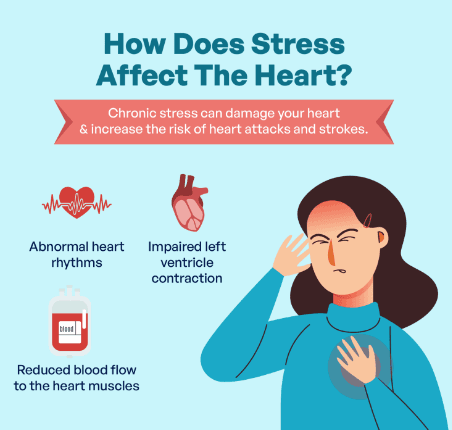
Everyday life can have stressful episodes – it’s unavoidable. For most people, these incidents pass with little more than being something to move on from.
Pre-existing cardiac conditions play a part
But experiencing emotional stress for people with certain cardiac related conditions including coronary artery disease, abnormal heart rhythms, congenital heart defects, cardiomyopathies (a group of diseases affecting heart muscle) can be a triggering point for sudden cardiac arrest – SCA. What is the sequence of events that leads emotional stressors to be a starting point for such a serious condition requiring immediate intervention to save a life?
Hormonal changes are the start of it
Emotional stress releases “stress hormones”. There are several types of stress hormones – the best-known being adrenaline -- causing alterations to normal heart function including increased heart rate, changes in heart rhythm and higher blood pressure. In persons without cardiac complications these changes in heart status can be well tolerated while stress induced hormones are affecting the heart. However, in individuals with cardiac complications the heart is already stressed and under additional strain generated by the stress hormones, the combination of the two can lead to increased likelihood of SCA. Mental stress appears to precipitate SCA, presumably by more directly impacting on the cardiac ion channels that control the heart's electrical properties. This may lead to ventricular fibrillation, the arrhythmia that underlies SCA.
You have control over some cardiac conditions that that can lead to SCA
So while emotional stress does not directly cause SCA, it can alter or aggravate the underlying cardiac conditions that are known to be associated with a higher likelihood of SCA. Although certain conditions associated with increased likelihood of SCA (congenital abnormalities, age, and gender) can’t be changed, other associated causes including high cholesterol, obesity, poor exercise habits, smoking, alcohol use as well conditions that can be controlled with medications and devices (irregular heart rhythms, weakened heart muscle) can be improved, thus lessening the chances of SCA. Combating emotional stress with relaxation exercises also helps to reduce its emotional and physical impact.
So do your best to not give into emotional stress – your heart will thank you!
